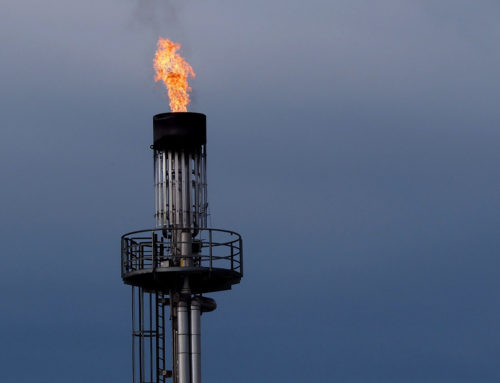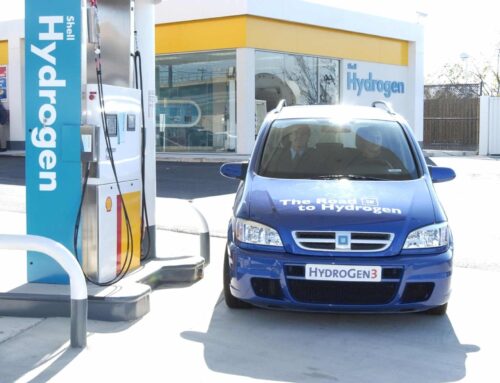In the latest saga of our work Stop Doing Terrible Things for Taxpayers, we joined with our friends at National Taxpayers Union this week to submit comments on an administration proposal to allow expanded sales of E15 (gasoline with 15 percent ethanol content) year-round. The proposal’s intent is to prop up a specific private industry, the substance would push huge costs on to taxpayers and consumers, and in case you didn’t know, E15 is incompatible with older vehicles and lawnmowers, chainsaws, and boat engines used this time of year. Nearly 25 years of calling out budget shenanigans (which is 15 years younger than ethanol subsidies), and yet the arcane regulatory procedural step – about waivers from Reid Vapor Pressure standards for gasoline blends sold at certain temperatures – still somehow manages to both shock and appall us.
Most gasoline sold at the pump today is 10 percent ethanol, or E10. After 2011, EPA allowed E15 to be used in newer vehicles, but with important restrictions: (1) E15 could only be used during non-summer months, to limit ozone pollution, and (2) its use was prohibited altogether in small motors and Model Year 2001 and older vehicles. Despite this, in March, EPA proposed to ignore its past findings to satisfy the corn ethanol lobby, an industry that has benefited from more than four decades of federal subsidies. Most ethanol is derived from corn, so future E15 expansion will likely be met with corn ethanol.
In addition to its harmful effects (see below), the proposed rule change is problematic because of its acknowledged intent – to help the U.S. ethanol industry. Ethanol does not need help. It already benefits from an annual mandate that 15 billion gallons of it be blended with gasoline – the Renewable Fuel Standard (RFS). In addition, a maze of other subsidies and tax credits prop up the industry. Until 2011, the ethanol industry also benefited from a $6 billion-per-year Volumetric Ethanol Excise Tax Credit (VEETC) and an import tariff. But these special interest subsidies have only distorted energy and agriculture markets and increased costs for taxpayers and consumers.
E15 proponents point to falling crop prices, for corn and soybeans in particular, to rationalize pumping more ethanol into an already distorted marketplace. To that, we say two things: (1) ethanol played a huge part in getting us into this mess; (2) President Trump’s trade war has made it worse, adding more salt to taxpayers’ wounds.
First, crop prices – and corn acreage – rose a decade ago, due in part to greater ethanol demand, as most U.S. ethanol is derived from corn. Now we’re awash in too much corn, driving down crop prices. By calling for the EPA to expand E15 availability to increase crop prices, the farm lobby is admitting ethanol consumption affects commodity prices. Flash back: seven years ago, the industry said ethanol was blameless for record crop and food prices!
Second, the trade war has depressed foreign demand for U.S. crops. So taxpayers get a one-two punch with the administration first doling out checks to businesses involved in farming to offset the trade war’s lower crop prices, and now throwing more bad policies onto already broken ones. Two wrongs don’t make a right.
Instead of forcing more ethanol into an already saturated market, policymakers should end costly biofuels subsidies and mandates. Already, experts have questioned whether corn ethanol reduces greenhouse gas emissions. Corn ethanol is also tied to greater water pollution from fencerow-to-fencerow corn production, higher food and feed prices, and higher fuel costs.
E15 expansion will worsen these problems. Consumers will suffer when older cars, ATVs, outboard engines, and motorcycles are damaged or fail due to incompatibility with higher ethanol blends. And because ethanol is a more corrosive fuel, taxpayers are on the hook when underground storage tanks and fuel pumps must be replaced to store and distribute E15. Secretary Tom Vilsack, then-Secretary of U.S. Department of Agriculture (USDA), earned the TCS Golden Fleece award in 2015 for skirting Congressional intent and funneling more than $100 million in taxpayer dollars toward special ethanol blender pumps at gas stations to provide E15 and even higher ethanol blends. Current USDA Secretary Sonny Perdue has hinted more subsidies may be coming.
As a reminder, Congress shot down ethanol blender pump subsidies for gas stations in the 2014 farm bill, and the Senate Environment and Public Works Committee also failed to advance a 2017 bill that would have expanded E15 sales year-round. The administration should note that even ethanol backers in Congress admit the E15 rule will face legal challenges for barreling ahead without Congressional approval.
Ethanol has been subsidized for 40 years – it’s a middle-aged policy that has been living in taxpayer’s basement for too long. Instead of kowtowing to ethanol special interests, policymakers should finally demand that the mature ethanol industry stand on its own two feet. Not only will the industry be better off competing in a free market without government interventions, it will be a win for taxpayers and consumers.










